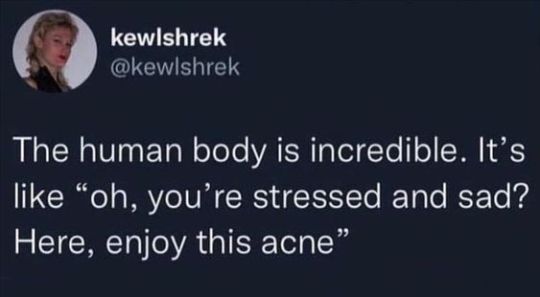#health
Text
April 22 - April 28
monday: 28 minute Cardio + 24 minute Glutes + 15 minute Legs + 15 minute Stretch
tuesday: 40 minute Cardio + 15 minute Upper Body + 15 minute Slim Arms & Shoulders + 15 minute Stretch
wednesday: 18 minute Cardio + 30 minute Legs + 15 minute Abs + 15 minute Stretch
thursday: 15 minute Slim Arms & Shoulders + 20 minute Back + 20 minute Glutes + 15 minute Stretch
friday: 5 minute Warm Up + 30 minute Full Body w Dumbbells + 15 minute Stretch
saturday: 30 minute HIIT + 15 minute Legs + 20 minute Legs + 15 minute Stretch
sunday: 25 minute Mobility & Stretch
#that girl#dream girl#it girl#self care#self love#glow up#becoming that girl#self help#self development#self improvement#clean girl aesthetic#clean girl#green juice girl aesthetic#green juice girl#pink pilates princess aesthetic#pink pilates girl#pink pilates princess#fitness#fitness blog#wellness#wellness girl#matcha girl#health#health aesthetic#health and lifestyle#health blog#wonyoungism#exercise#workout#workouts
221 notes
·
View notes
Text
175 notes
·
View notes
Text
Quick heartbeat video
#me#cardiophila#heartbeat#male heartbeat#male abs#bellybutton#hot navel#male bellybutton#bellybutton navel#fast heartbeat#cardiophile#strong men#latin men#lean muscle#lean body#visible heartbeat#heart pounding#pounding heart#female heartbeat#strong body#gym bro#gymlife#gymmotivation#sexy#abdominals#lower abs#running#beating heart#male health#health
55 notes
·
View notes
Text
#bagginshield#foot feddish#cleveland cavaliers#infp#hot celebs#billdip#yona of the dawn#tetekbesar#aestheitcs#blake shelton#vaporwave aesthetic#health#star wars rebels#xbox one#stuffed animals
130 notes
·
View notes
Text
#sentimentos#Leo#blake shelton#trans rights#vaporwave aesthetic#homosexual#health#poecitas#waterparks#xbox one#Lockwood and co#stuffed animals
136 notes
·
View notes
Text
Removing part of the brain’s temporal lobe is the only treatment available to the millions of people with a form of epilepsy that medications often don’t alleviate. But even that approach fails a third of the time.
A new study from Stanford Medicine researchers and their colleagues offers an explanation and suggests a more effective approach to treatment. They found that a previously overlooked region of the hippocampus, the fasciola cinereum, appears to be involved in instigating and propagating seizures. Removing or inhibiting the fasciola cinereum may help those patients who don’t find relief after surgery.
Continue Reading.
33 notes
·
View notes
Photo

(via Page Not Found • Instagram || Curated with love by yogadaily)
#health#kroukachasana b#yogabun#yoga#yogi#yogini#asana#asanas#yoga pose#yoga poses#yogainstpo#manifestation#manifest#manifesting#fitness#health & fitness#yoga daily
36 notes
·
View notes
Text

Cupcakes with Boston Cream Pie Filling
25 notes
·
View notes
Text

Whether your mom loves relaxing massages, staying active with a fitness tracker, or simply enjoys pampering herself with a luxurious foot spa, Renpho has something for everyone. Trust me, I've tried their products myself, and they never disappoint! 💯
Shop here: https://go.renpho.com/mother-day-sale-2024
#health#wellness#fitness#healthy lifestyle#smart living#healthy living#lifestyle#sale#eyemassager#giftforher#mothersd#mothers day sale
39 notes
·
View notes
Text
I’m taking a staycation the week after next and I’m honestly so excited to be a blob and do nothing (unless it’s something fun that I want to do) for a whole week.
I can’t remember the last time I scheduled a vacation of any kind that was completely on my own terms: no family or other social obligations or pre-existing travel plans driving it, no days off work happening TO me because of illness or national/business holidays or pandemic shutdowns or being laid off. Just “I need a break and I have some vacation days so I’m using them.”
I’m actually not sure I’ve EVER done that. It kind of blew my mind when I suddenly realized it was a thing I could do at my current job.
19 notes
·
View notes
Text
19 notes
·
View notes
Text
It's not about being the best. It's about being better than you were yesterday
#green juice girl#that girl#it girl#pink pilates princess#clean girl#health and wellness#healthy#healthy living#healthy weight loss#health#healthy tips#wellness#healthy diet#healthy lifestyle#healthy life tips#levelup#leveling up#level up journey#weightlosstips#lose weight#dream life#dream body#dream girl#self esteem#self care#self improvement#self love#self growth#self gratitude#divine feminine
18 notes
·
View notes
Text

Sporty Girls
#beauty#biophilia#health#skin care#biophilia nutrition#self care#nutrition#wellness#biophilianutrition#health and wellness#hailey bieber#sporty#sporty girls#sporty babe#sporty chic#sporty and rich#fashion#style#fitness and exercise#fitness#fit girls#fitblr#fitspo#skincare regimen#skincare routine#skincare tips#skincare#haircare routine#haircare tips#haircare
17 notes
·
View notes
Text

35K notes
·
View notes
Text
Horrible fact of the day: Chevron just released a new boat fuel that WILL give you cancer.
Not "might", not "could", WILL. It has a cancer ratio of 1.3:1, as in, in a group of 10 people, 10 would contract CANCER.
(Edit: apparently some articles are now saying 1.4:1, and some are saying a little under that. Either way, the consensus seems to be anywhere between a 95-100+% of contracting cancer, with some expectations of this fuel not even needing a full lifetime of exposure for you to get Cancer.)
The EPA's safety limit is 1:1,000,000 as in 1 in a million people get cancer.
The EPA approved it anyways. I am not joking. The EPA approved a boat fuel that has a near 100% chance of giving someone cancer. It has such a good chance of giving someone cancer that if you DIDN'T get cancer YOU WOULD BE AN OUTLIER.
Fuck the oil industries.
Edit: If you find this (rightfully) horrifying, have you considered industrial sabotage? /hj
This isn't something we can vote away. This isn't something the rich are gonna apologize and make a 10 minute apology video for this. They don't care if you starve or wither in hospitals or get blown up in their wars.
If you don't know where to get started:
If you already know what to do, then it's time to do it. Participate in mutual aid, raise awareness in real life as well as online, participate in or train in self defense and emergency medical training classes.
#anarchy#chevron#fuel#oil#news#health#healthcare#cancer#research#anarchism#leftism#anarchist#leftist#communist#socialism#socialist#eco#green#earth
33K notes
·
View notes
Text
Researchers have revealed the regulatory mechanism of a specific protein that plays a key role in balancing the immune response triggered by viral infections in mammal cells. These findings could help drive the development of antiviral therapies and nucleic acid medicines to treat genetic disorders. The research is published in the journal Nucleic Acids Research.
For cells to protect themselves from viral infections, a series of immune responses typically occur, including programmed cell death called apoptosis and interferon signaling. While apoptosis is a normal process, that occurs with or without the presence of viral molecules, following a cascade of steps to end with the death of a cell—which might not sound advantageous to the host—it can help prevent the reproduction of abnormal cells, including those infected by viruses, and eliminate them from the body.
Continue Reading.
47 notes
·
View notes